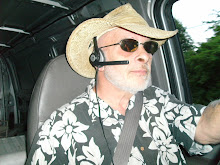DOHA - A proposed Arab League plan to end months of bloodshed in Syria includes a demand to remove tanks from the streets, the head of the pan-Arab group Nabil al-Arabi said on Monday.
"The Arab proposal to Syria calls for withdrawing tanks and all military vehicles to bring an immediate end to the violence and give assurances to the Syrian street," Arabi said in the Qatari capital Doha.
The Arab League was on Monday awaiting a response from Syrian President Bashar al-Assad to its plan which, Arabi said, also calls for a dialogue to take place in Cairo between Syrian regime officials and opposition figures.
Arabi's statements came after an overnight meeting Sunday between a group of Arab foreign ministers and their Syrian counterpart Walid Muallem in Doha that was convened to address fears that unchecked Syrian bloodshed could further inflame the Arab world.
Qatar's foreign minister, Sheikh Hamad bin Jassem Al-Thani, who headed an Arab ministerial meeting with a Syrian delegation late on Sunday, said Assad must take "concrete steps" to end the unrest that according to the United Nations has claimed more than 3,000 Syrian lives since March.
Repeating previous warnings, the Qatari Foreign Minister told reporters that Assad risks forcing an international intervention if he allows the violence to continue.
"The entire region is at risk of a massive storm," said Sheikh Hamad after Sunday's three hour meeting.
"What is required of Syria... are concrete steps that could avoid what happened to other countries," he said, in an apparent reference to NATO's military intervention in the popular uprising against Libya's slain leader Moamer Gathafi.
Speaking to reporters after the meeting in the Qatari capital Doha, Sheikh Hamad said the group of Arab League foreign ministers "agreed on a serious proposal to stop the killing and all forms of violence in Syria," adding that the committee expected a response from Assad on Monday.
He did not reveal details of the proposed plan.
The comments came in response to a warning from Assad that any Western intervention in Syria would cause an "earthquake" across the Middle East.
"Any problem in Syria will burn the whole region. If the plan is to divide Syria, that is to divide the whole region," Assad told Britain's Sunday Telegraph newspaper.
"Syria is the hub now in this region. It is the fault line, and if you play with the ground you will cause an earthquake -- do you want to see another Afghanistan, or tens of Afghanistans?" he asked.
At an emergency session in Cairo on October 16, the 22-member League called for "national dialogue" between the government and opposition by the end of October to help stop the violence and avoid "foreign intervention" in Syria.
China, which together with Russia vetoed a UN Security Council resolution on Syria earlier this month, expressed support for the Arab mediation effort.
Its Middle East envoy Wu Sike said in Cairo he had told Assad in Damascus on Thursday that his regime's deadly crackdown on dissent "cannot continue."
The Doha talks came as Syrian activists put mounting pressure on the Arab League to suspend Syria's membership of the 22-member bloc. Activists across Syria organised protests on Sunday calling for the League to "freeze the membership" of Syria.
Meanwhile, the death toll in Syria continues to rise with at least seven people killed in violence on Sunday in several cities including Homs, Hama, Idlib and Deraa, the National Organisation for Human Rights said in a statement.
Almost 100 people were killed in Syria on Friday and Saturday, the two bloodiest days yet of the uprising, among them 30 Syrian security agents and dozens of civilians, according to the Syrian Observatory for Human Rights, a Britain-based rights watchdog.



No comments:
Post a Comment